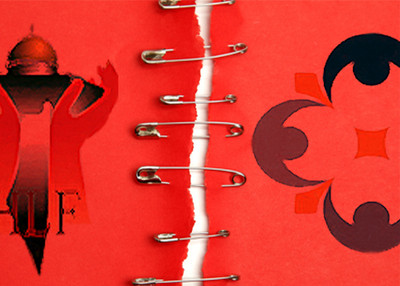 There's another letter circulating on Capitol Hill affirming federal law enforcement's belief that the Council on American-Islamic Relations (CAIR) is the product of a Hamas-support network in the United States.
There's another letter circulating on Capitol Hill affirming federal law enforcement's belief that the Council on American-Islamic Relations (CAIR) is the product of a Hamas-support network in the United States.
Assistant Attorney General Ronald Weich sent the letter last month to four members of Congress who asked for details last fall on how CAIR was named an unindicted co-conspirator in the terror-finance trial against the Holy Land Foundation and its former officials.
He included trial transcripts and exhibits "which demonstrated a relationship among CAIR, individual CAIR founders, and the Palestine Committee. Evidence was also introduced that demonstrated a relationship between the Palestine Committee and HAMAS, which was designated as a terrorist organization in 1995."
Hamas is an offshoot of the Muslim Brotherhood, and trial exhibits show the Brotherhood created the Palestine Committee. CAIR officials adamantly deny any involvement with either Hamas or the Muslim Brotherhood. The Weich letter, however, shows that the Department of Justice has not wavered in its conclusion that the internal records it possesses prove a connection.
It echoes a letter last spring from an FBI congressional liaison explaining why Bureau policy bars communication with CAIR outside of a criminal investigation. In that letter, Richard C. Powers, an assistant director in the FBI's office of Congressional Affairs, said evidence "demonstrated a relationship among CAIR, individual CAIR founders (including its current President Emeritus and its Executive Director) and the Palestine Committee."
Other exhibits showed that the Palestine Committee was a fundraising and propaganda arm in the United States for Hamas, which has been a designated terrorist organization since 1995. "[U]ntil we can resolve whether there continues to be a connection between CAIR or its executives and HAMAS," Powers wrote, "the FBI does not view CAIR as an appropriate liaison partner."
Weich's letter to U.S. Rep. Sue Myrick and her colleagues points to two excerpts of trial testimony from FBI Special Agent Lara Burns. Both deal with conversations leading up to CAIR's original formation.
In one, she reads from transcripts from a secret 1993 gathering of Hamas supporters in Philadelphia where the group talks of creating a new organization with a fairly innocuous sounding name. She read comments from Holy Land Foundation President Shukri Abu Baker explain the new entity should present a benign face compared to existing Islamist groups:
"And let's not hoist a large Islamic flag, and let's not be barbaric-talking. We will remain a front so that if the thing happens, we will benefit from the new happenings instead of having all of our organizations classified and exposed."
In the other, Burns describes an exhibit which shows CAIR listed on a Palestine Committee agenda within weeks of its 1994 creation. In response to a question from federal prosecutor Barry Jonas, Burns said it was the first time CAIR's name appeared in internal Palestine Committee records seized by the FBI:
A. It did not exist prior to the Philadelphia meeting.
Q. So it came into being after Philadelphia?
A. That is correct.
After a 2007 trial ended with a deadlocked jury, a 2008 retrial resulted in guilty verdicts on 108 counts. CAIR petitioned the Dallas court presiding over the Holy Land trial to be removed from the co-conspirator list. Their complaint emphasized the unusual nature of making public the names of the unindicted co-conspirators and claimed the move unfairly tarnished CAIR's reputation. That request was denied last summer.
Weich's letter concludes by noting U.S. Rep. Sue Myrick requested "an investigation into the possible illegalities of CAIR," saying it was passed along to "appropriate FBI entities."
Recent filings in a civil case involving CAIR indicate that a federal grand jury investigation is looking at the organization's ties to Hamas.
Read the full DOJ letter here.


